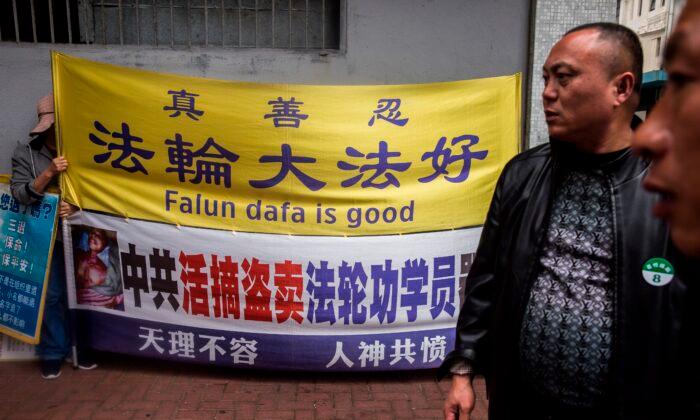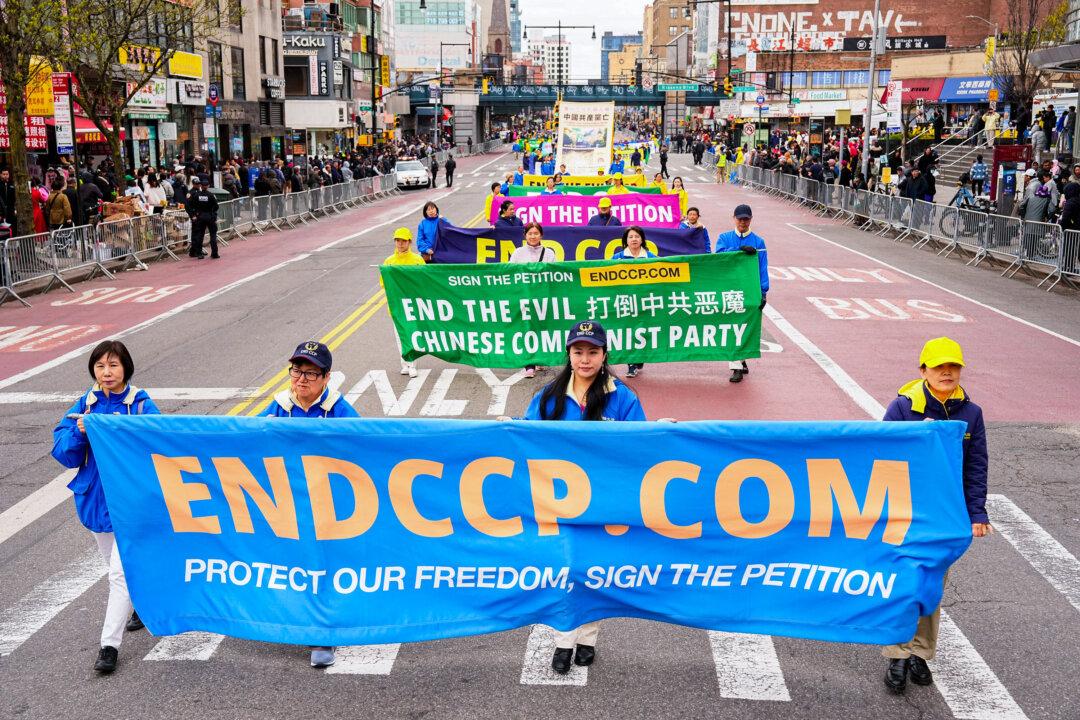Adherents of the persecuted faith group Falun Gong in Hong Kong are demanding an apology from a pro-Beijing newspaper over a series of articles they say incited hate and eroded the last bit of freedom in the city.
Between April 20 and April 29, the newspaper Ta Kung Pao ran at least eight articles describing the spiritual practice as an “evil cult,” “superstition,” and “malignant tumor in society.” One article claimed that the Tianti Bookstore, where Falun Gong books are sold, was “smuggling poisonous books.”
Such language is “slanderous” and “incites hate toward Falun Gong” as adherents in mainland China “endured unjustified tribulation,” the Hong Kong Falun Dafa Association responded in a May 3 statement.
The association demanded that Ta Kung Pao immediately retract the articles and issue a public apology.
“The Association also reserves the right to pursue any and all available legal and equitable remedies of Ta Kung Pao’s false reporting and potential libel,” it stated.
Falun Gong, also known as Falun Dafa, teaches the principles of truthfulness, compassion, and tolerance, as well as a set of meditative exercises, according to its website. There were around 70 million to 100 million people practicing the discipline by 1999, when the Chinese regime saw its popularity as a threat and launched a brutal eradication campaign.
For more than two decades, Falun Gong practitioners in Hong Kong and elsewhere have been calling attention to the persecution of fellow adherents in mainland China, who are constantly under threat of arrest, torture, slave labor, and even forced organ harvesting for persisting in their faith.

“Hong Kong already has the national security law and will not tolerate anti-China and Hong Kong forces to continue running wild,” the Ta Kung Pao editorial declares. It named several pro-democracy activists, among them publisher Jimmy Lai, who Hong Kong authorities have prosecuted using the new security law, before asserting that the days for Falun Gong adherents “to remain at large also won’t be long.”
By attempting to direct the Hong Kong government to outlaw Falun Gong, Ta Kung Pao has taken a wrong position and the acts will eventually backfire, the Hong Kong Falun Dafa Association said.
“Many deem Falun Gong’s existence the yardstick of freedom in Hong Kong,” the association said. “Once Hong Kong completely loses freedom of speech and press freedom, Hong Kong will cease to be Hong Kong.”
On May 3, four Falun Gong practitioners—the maximum number allowed for public groups under Hong Kong’s social distancing measures—held banners in protest of the articles in front of Ta Kung Pao’s main office.
Zhou Sheng, one of the protesters, said he saw two suspicious people who appeared to be Chinese state agents near his apartment on April 13. The two, a man and a woman, showed up on his apartment floor claiming to deliver pizza. When questioned by Zhou, they couldn’t present a receipt or explain why they needed two people for the delivery, and they left hastily after Zhou said he would report them to the police if they came again.
An undercover Ta Kung Pao reporter approached several local Falun Gong adherents by feigning interest in the practice. Even before the vilifying reports, two of the practitioners were already experiencing harassment that had disrupted their lives, according to Zhou.
Lau Ching Kwok, a Falun Gong practitioner who was named in the articles, said the outlet changed his words to cast a negative impression on the practice.
“Falun Gong has no secrets; the practitioners here care nothing about fame or money. They are only a group of people who strive to be good,” he said during the protest.
Officials at Ta Kung Pao didn’t respond to a request by The Epoch Times for comment.






Friends Read Free